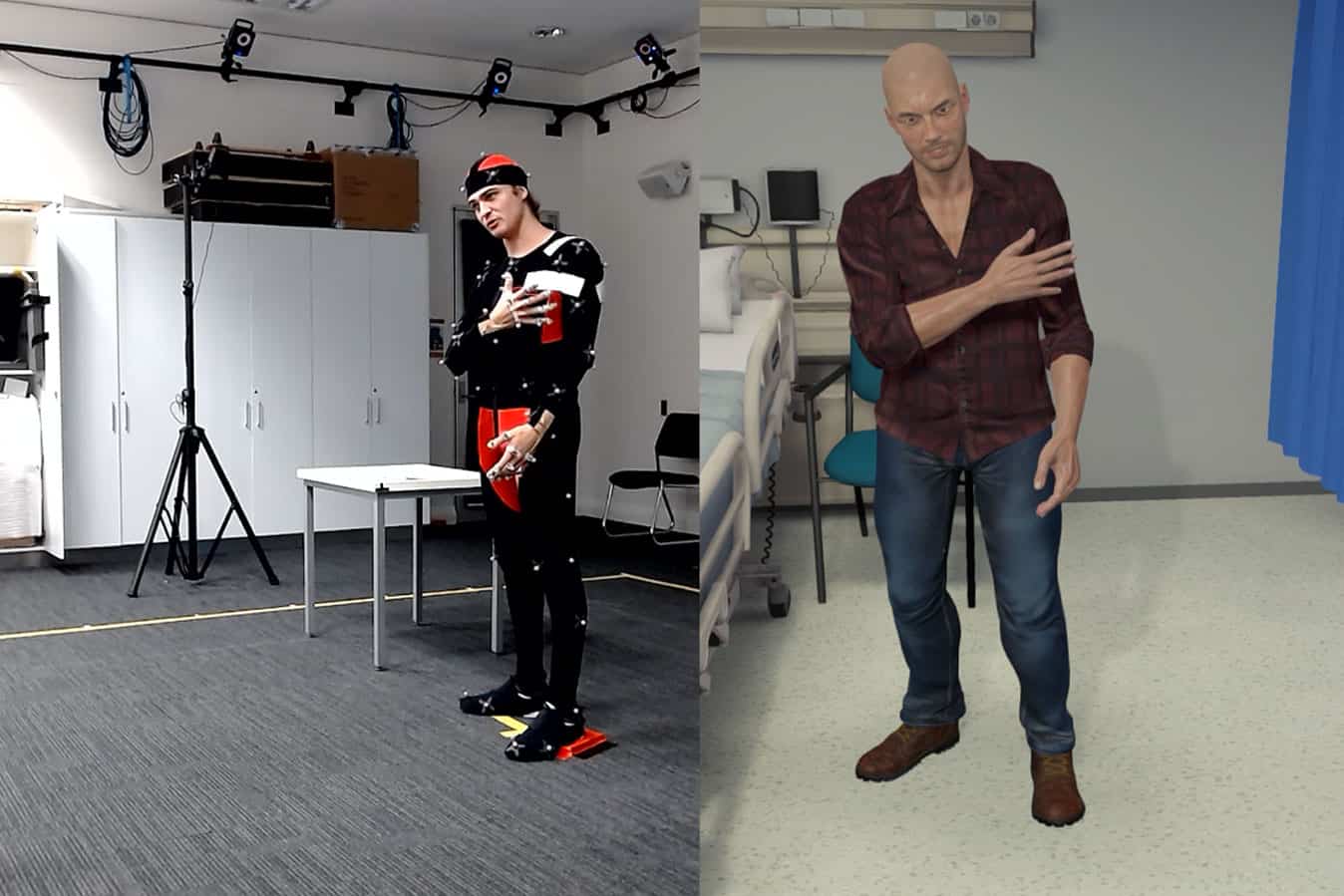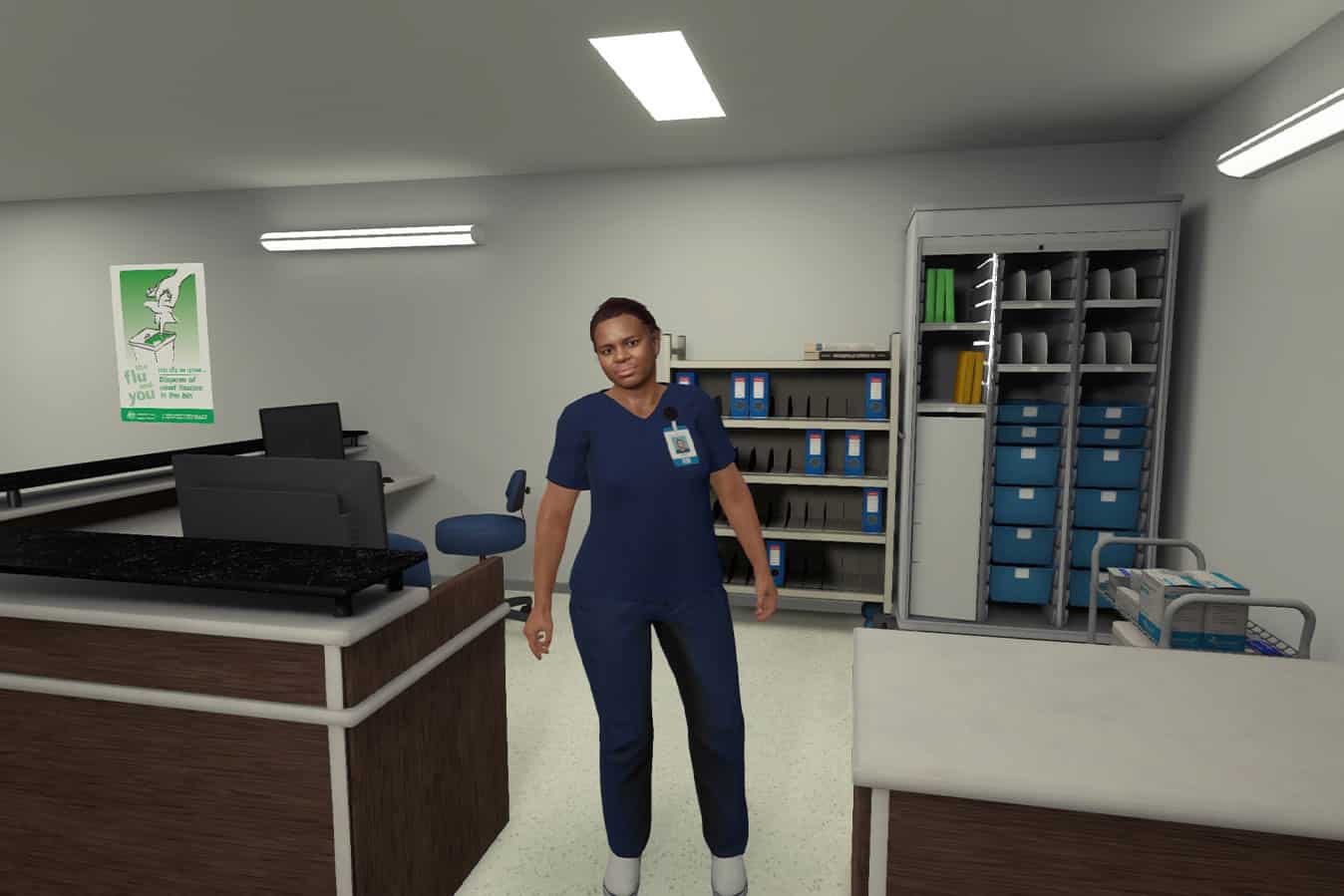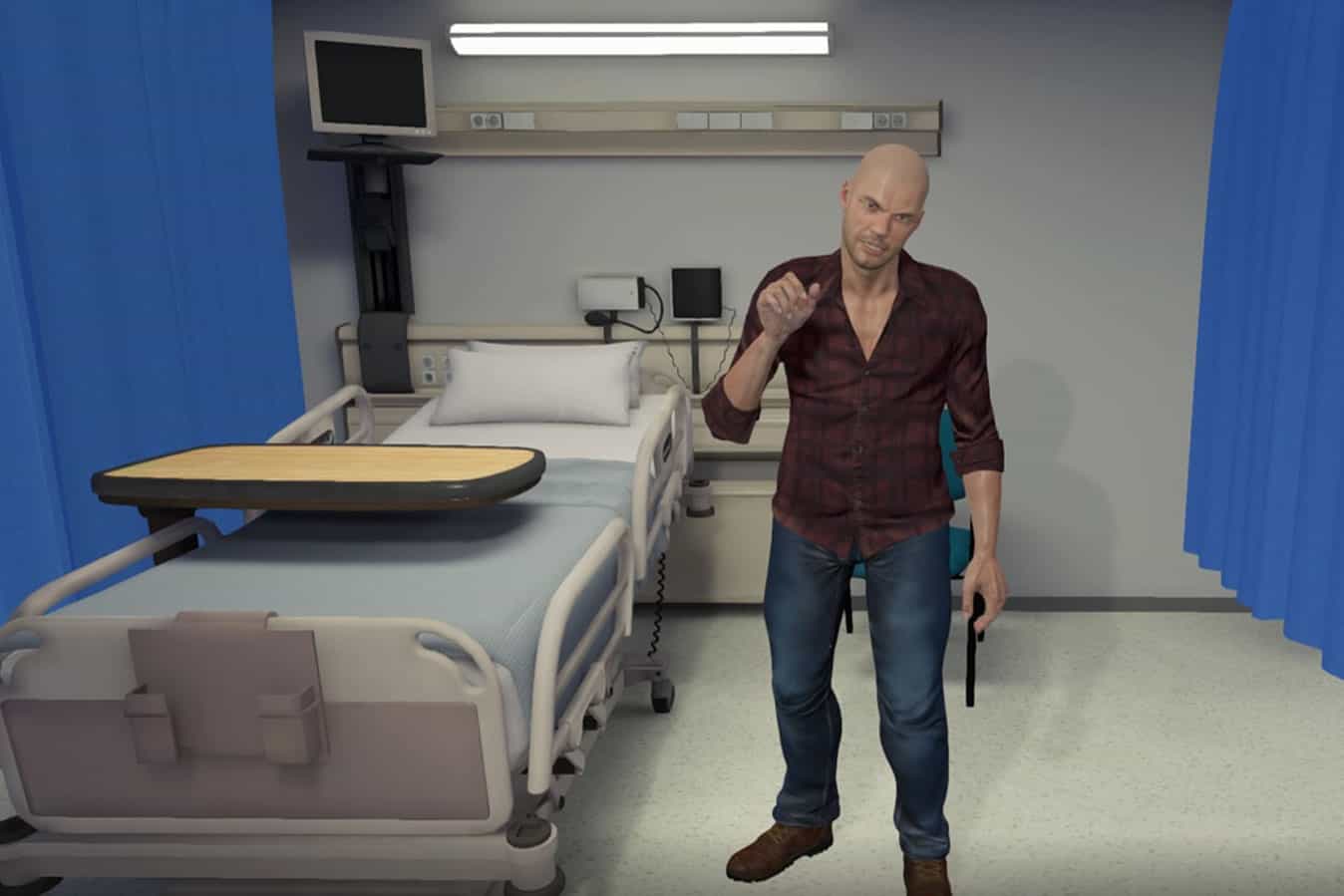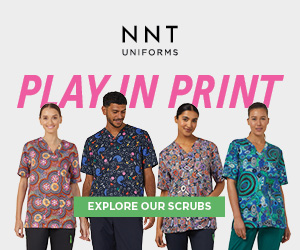A new approach giving nurses and other healthcare providers experience in dealing with aggressive members of the public, without putting them in harm’s way, has been recognised for its outstanding innovation.
IVADE is an immersive computer simulation program, developed by Edith Cowan University (ECU), which helps nurses and nursing students practice making decisions when faced with a hostile patient.
The program was named winner of the Innovating Government category at the annual INCITE Awards, Western Australia’s longest running tech awards program, held on 4 August.
Students from the Western Australian Academy of Performing Arts bring the immersive virtual experience to life through use of motion capture technology. [image of Derek side by side mocap]

“It really is a realistic experience and the feedback we’ve received from both working clinicians and students has been extremely positive,” said PhD candidate Josh Johnson from ECU’s Simulation and Immersive Digital Technology Group.
IVADE is a computer program available in virtual reality or desktop computer, which puts users in a simulated hospital environment where they are confronted with an aggressive patient, complete with coarse language.
Participants can either wear virtual reality goggles or play via a desktop computer, where they are faced with an agitated patient named Derek.
They are given a number of options of how to respond, with their choices leading to six different outcomes ranging from Derek calming down, or his anger escalating to using explicit language and becoming physically violent.
The participant is asked to make several decisions, all of which will affect whether the situation is eventually deescalated or results in the patient physically lashing out.
“IVADE combines the theory with practical demonstration. Being immersive through a virtual reality platform, it really is an engaging way to deliver de-escalation training.
“During trials, people were so immersed that when Derek would physically lash out, people would instinctively move to avoid the blow,” Mr Johnson said.


Unfortunately, healthcare professionals regularly have to deal with difficult situations where there is a risk of verbal and physical abuse. IVADE used best practice guidelines and was an effective, easily accessible tool for teaching aggression and violence de-escalation, Mr Johnson said.
“Nine out of 10 people we showed this to, suggested they would like to complete more aggression de-escalation training in virtual reality.”
Though IVADE is currently tailored towards healthcare settings, its flexibility means it can easily be transferred to other industries which may also involve difficult interactions with the public, including hospitality, retail, and social work.
“Now the foundations of IVADE are in place, we can create different scenarios and move it from a hospital to a hotel, retail store, classroom, or other locations relevant to the industry in question,” Mr Johnson said.








